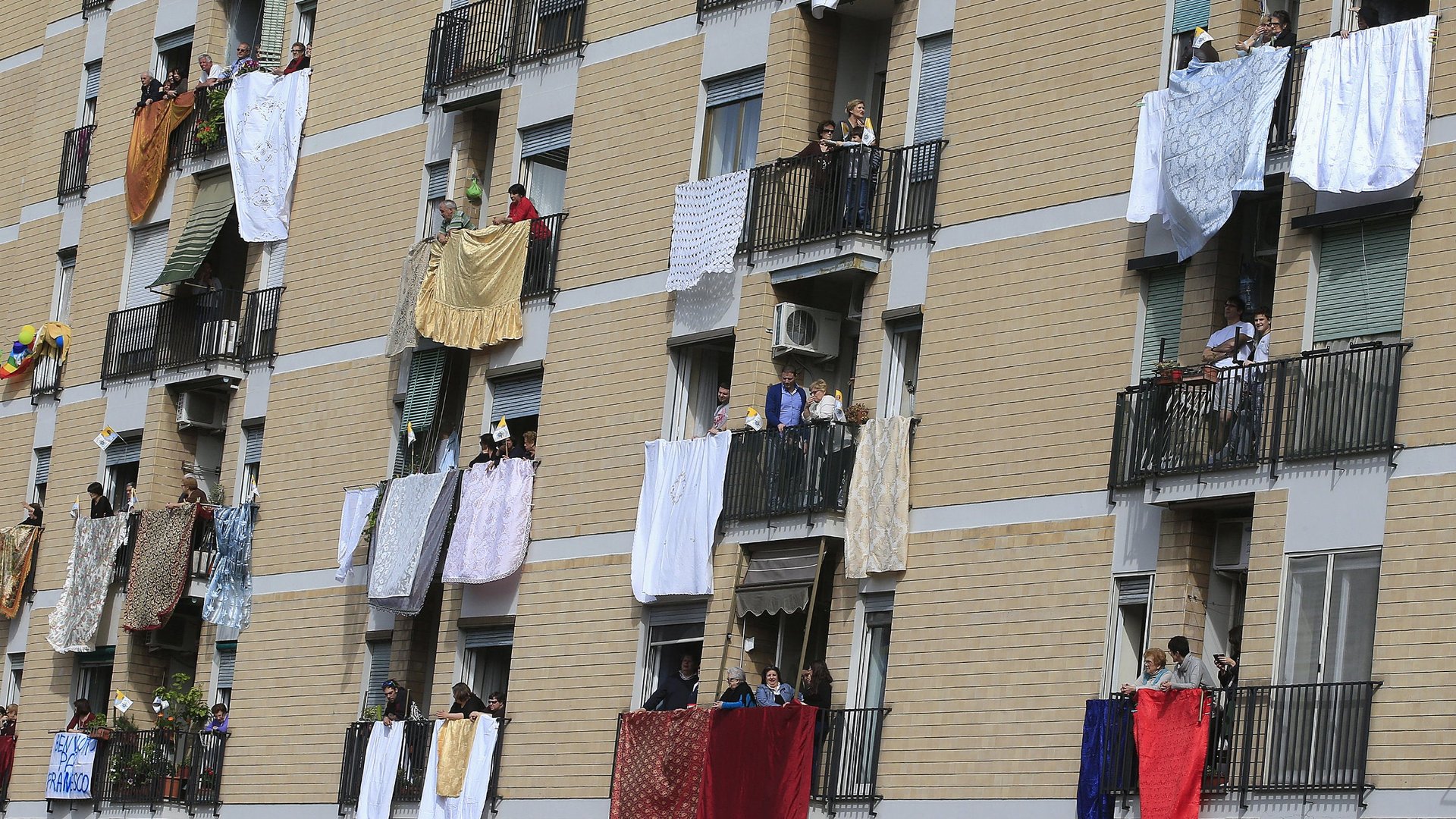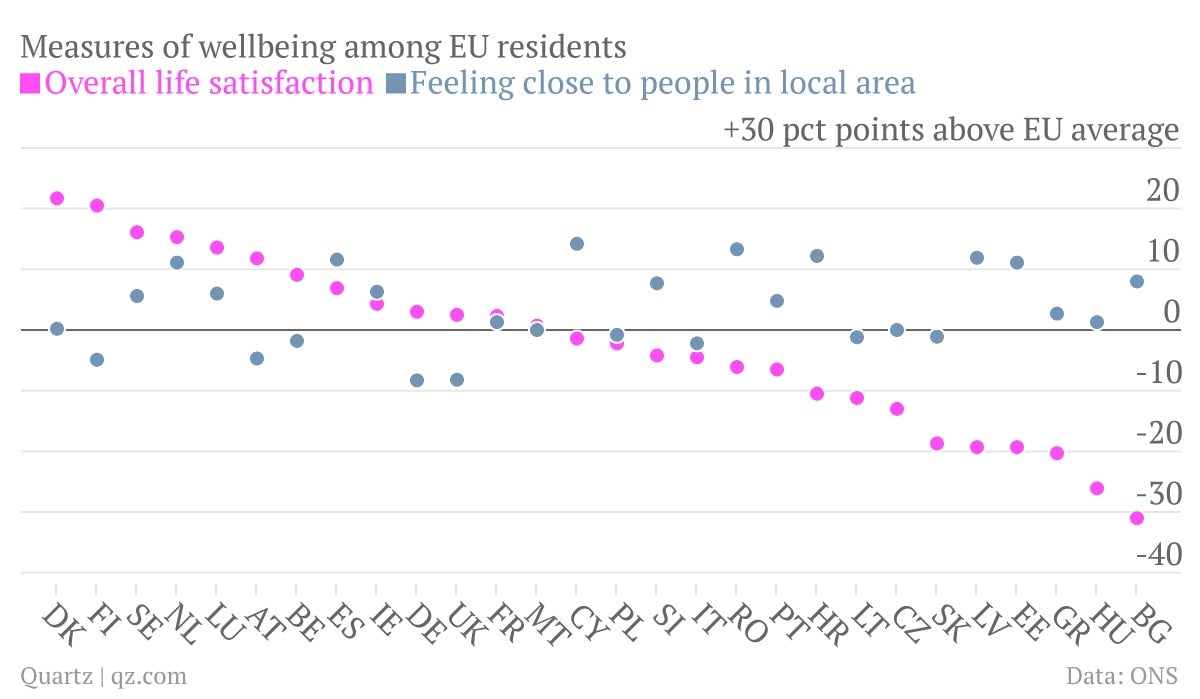In Europe, knowing your neighbor doesn’t necessarily make you happier
For Jean-Paul Sartre, hell was other people. Many in Europe seem to share the French philosopher’s view.


For Jean-Paul Sartre, hell was other people. Many in Europe seem to share the French philosopher’s view.
The UK’s Office for National Statistics recently published the results of a pan-European survey on happiness. Thousands of Europeans were asked a range of questions about their relationships, work, health, finances, and much else besides.
As is usually the case, in terms of overall life satisfaction, Scandinavians top the list, while Eastern Europeans are the gloomiest. But things get more interesting when you dig into the details:

What’s notable is that some of the people who report the weakest connections to their local communities—essentially, whether they know and/or like their neighbors—also show above-average happiness. Brits and Germans are the least attached to their local areas, but lie above the EU average in overall life satisfaction.
Equally, some of the tightest-knit communities are relatively unhappy. The vast majority of Cypriots say they are close with people in their local area, but their overall happiness is a bit below the EU average. The gap is even wider for Romanians, Croatians, and Latvians, who report the next-strongest bonds with their neighbors and happiness levels even further below the EU average.
To be clear, the Dutch, Swedes, Spanish, and others manage to combine both above-average happiness and closeness with their communities. On the other side, Italians and Poles are among the groups where both local bonds and life satisfaction are below the EU average.
Of course, happiness is determined by many more factors then whether you get along with your neighbors. But in a surprising number of European countries, the data seem to suggest that plenty of people enjoy life more when they’re living among strangers.